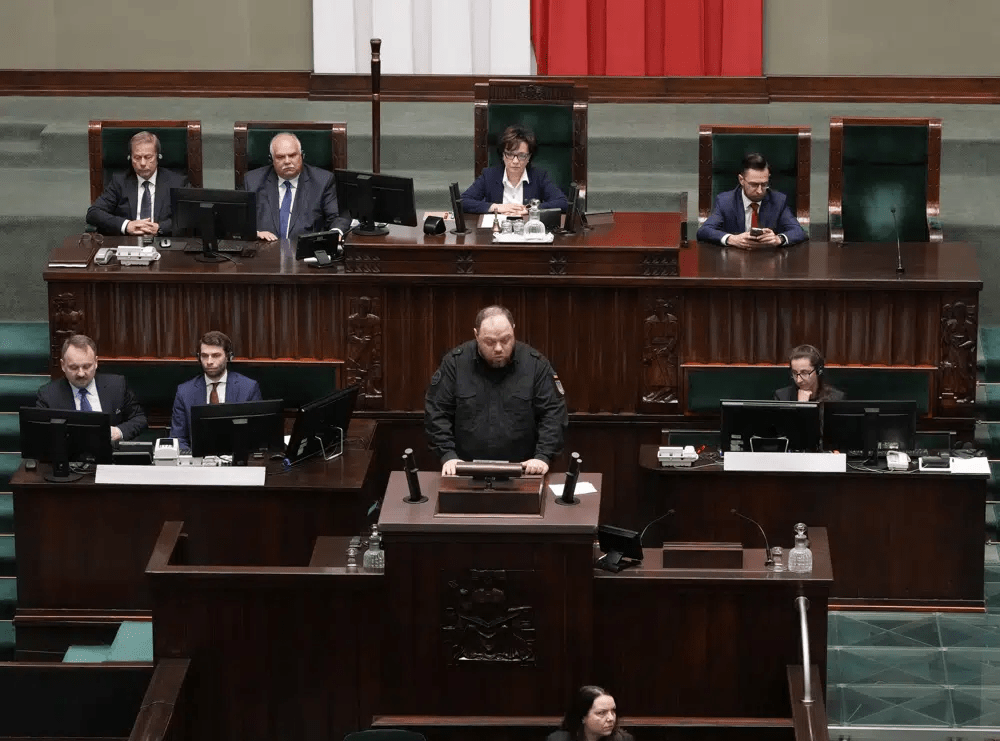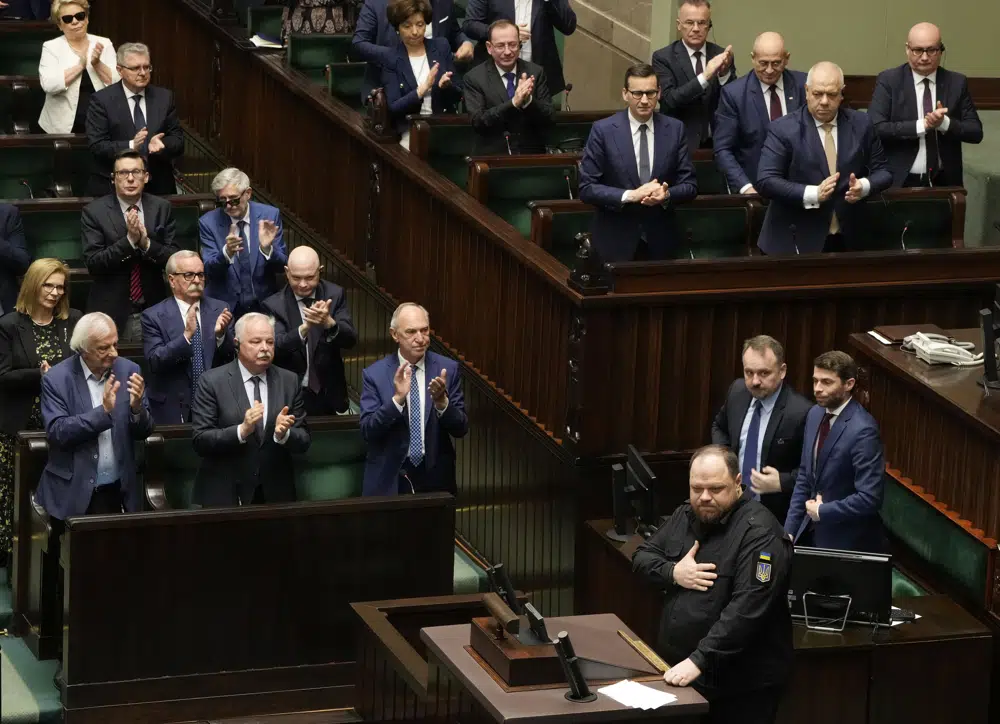Chairman of Ukraine’s parliament, Ruslan Stefanchuk has offered words of reconciliation regarding World War II-era mass murders that have strained relations with its neighbor and strategic ally Poland for 80 years.
He sought reconciliation in his address to Poland’s lower house of parliament, the Sejm, during a visit to Warsaw on Thursday, May 25, 2023.

On July 11th, 2023, Poland will commemorate the 80th anniversary of the slaughter of around 100,000 Poles in 1943–1944 by Ukrainian nationalists and others in Volhynia and other areas that are now in Ukraine but were then in eastern Poland and under Nazi German rule.
The nationalists and their allies destroyed entire villages and massacred all of their residents in an effort to create an independent Ukraine state. Poland refers to the incidents as a genocide. In reprisal, an estimated 15,000 Ukrainians perished.
“Human life has equal value, regardless of nationality, race, sex or religion. With this awareness we will cooperate with you, dear Polish friends, and we will accept the truth regardless of how uncompromising it may be.”
Ruslan Stefanchuk
Poland has been offering military and humanitarian support to Ukraine in its war with Russia. As such, Stefanchuk thanked Poland for the current support, and then offered sympathy to the families of the Poles slain in what is known as the Volhynia massacre.
“We understand your pain after the loss of your loved ones. To all the families and descendants of the victims of the events in Volhynia, I express my sincere sympathy and gratitude for upholding the memory of their ancestors.”
Ruslan Stefanchuk
Stefanchuk also offered a joint effort to identify and honor all the victims buried in Ukraine.
Poland has been requesting Kyiv’s approval for the exhumations, identification, and memorialization of the Polish victims for a long time. However, some of the Ukrainian nationalist leaders of the time are regarded as key figures for Ukraine’s statehood, lending a different perspective there to the events.
“Our Joint Moral And Christian Obligation”

Moreover, Stefanchuk thanked the families of the victims for cultivating a memory which “does not call for revenge or hatred, but which serves as a warning that nothing like that can ever happen between our nations again.”
He said that identification and honoring of the victims “without bans or barriers” is “our joint moral and Christian obligation.”
The Chairman of Ukraine’s parliament added that an open, joint approach to the painful history would be an “exceptionally necessary test” that could pave the way for the words “we forgive and ask for forgiveness.” Those words, offered by Poland’s Catholic bishops to Germany’s bishops in the 1960s, laid the foundations for Poland’s reconciliation with its World War II aggressor, Germany.
Stefanchuk’s speech was described by Polish Foreign Minister, Zbigniew Rau as “very good,” saying that “we have heard what we wanted to hear.”
“We are on the right path and this speech shows that our positions are getting closer again. We have something to build on.”
Zbigniew Rau
Leaders of Poland’s have claimed that disclosing the entire truth will improve bilateral ties with Ukraine and stifle any weaknesses that could be exploited by outside nations looking to sour such ties.



















